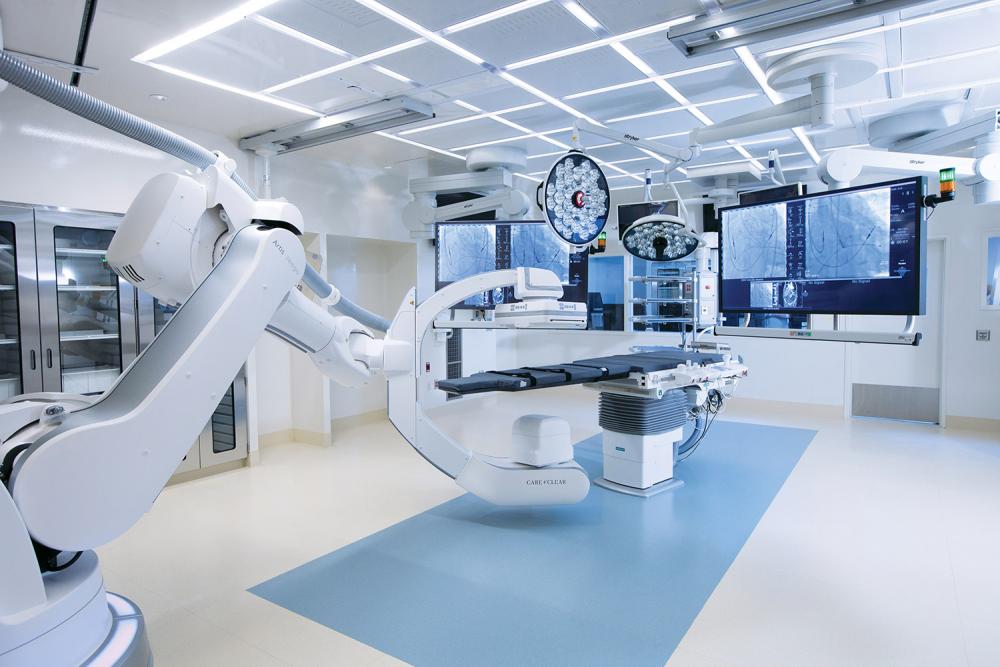Dealership Technology Solutions: Transforming the Automotive Industry
Dealership technology solutions are revolutionizing the automotive industry, ushering in a new era of efficiency, customer engagement, and profitability. From traditional dealership systems to modern, cloud-based platforms, technology is empowering […]

Dealership technology solutions are revolutionizing the automotive industry, ushering in a new era of efficiency, customer engagement, and profitability. From traditional dealership systems to modern, cloud-based platforms, technology is empowering dealerships to streamline operations, enhance customer experiences, and adapt to the ever-evolving demands of the modern car buyer.
This transformation is driven by advancements in artificial intelligence, blockchain, and the Internet of Things (IoT), which are enabling dealerships to personalize customer interactions, optimize inventory management, and leverage data analytics to make informed business decisions.
The Evolving Landscape of Dealership Technology: Dealership Technology Solutions
The automotive industry has always been at the forefront of technological advancements, and dealerships are no exception. Over the years, dealership technology has undergone a remarkable transformation, evolving from rudimentary systems to sophisticated platforms that streamline operations and enhance customer experiences.
Historical Evolution of Dealership Technology
Dealership technology has a rich history, marked by key milestones and innovations that have revolutionized the way dealerships operate. Early systems were primarily focused on basic tasks such as inventory management and accounting.
- 1980s: The introduction of personal computers and software programs brought about a significant shift in dealership operations. These early systems allowed dealerships to automate tasks like inventory tracking, customer relationship management (CRM), and financial reporting.
- 1990s: The rise of the internet ushered in a new era of dealership technology. Dealerships began adopting online tools for marketing, sales, and customer service. Websites and email marketing became crucial for reaching potential customers.
- 2000s: The dawn of the 21st century saw the emergence of more integrated and comprehensive dealership management systems (DMS). These systems consolidated various functionalities, providing dealerships with a single platform for managing all aspects of their business.
Traditional vs. Cloud-Based Dealership Systems
Traditional dealership systems were typically on-premises, requiring significant hardware investment and ongoing maintenance. These systems were often inflexible and difficult to update, making it challenging for dealerships to keep up with evolving customer needs and industry trends.
- Traditional Dealership Systems:
- On-premises software requiring significant hardware investment.
- Limited scalability and flexibility.
- High maintenance costs.
- Difficult to integrate with other systems.
- Cloud-Based Dealership Systems:
- Software accessed through the internet, eliminating the need for on-premises hardware.
- Scalable and flexible, allowing dealerships to adapt to changing business needs.
- Lower maintenance costs, as updates and upgrades are handled by the cloud provider.
- Easy integration with other systems, enhancing data sharing and efficiency.
Emerging Trends and Technologies
The future of dealership technology is being shaped by several emerging trends and technologies, including artificial intelligence (AI), blockchain, and the Internet of Things (IoT).
- Artificial Intelligence (AI): AI is transforming the way dealerships interact with customers and manage their operations. AI-powered chatbots can provide instant customer support, while AI algorithms can analyze customer data to personalize marketing campaigns and improve sales effectiveness.
- Blockchain: Blockchain technology offers a secure and transparent way to track vehicle history and ownership. This can help dealerships build trust with customers and reduce fraud.
- Internet of Things (IoT): Connected vehicles and other IoT devices are generating vast amounts of data that dealerships can use to improve their services. For example, dealerships can use IoT data to predict maintenance needs and offer proactive service recommendations to customers.
Optimizing Customer Experience with Technology
In today’s competitive automotive landscape, providing an exceptional customer experience is paramount to success. Dealerships are embracing technology to enhance customer engagement, satisfaction, and loyalty throughout the entire automotive journey, from initial contact to ongoing ownership.
Personalizing the Customer Journey
Technology enables dealerships to personalize the customer experience by gathering and analyzing data to understand individual preferences and needs. By leveraging customer relationship management (CRM) systems, dealerships can create tailored communications, offers, and services.
- Personalized communication: CRM systems allow dealerships to segment their customer base based on demographics, purchase history, and other factors. This enables them to send targeted emails, SMS messages, and push notifications with relevant content, such as service reminders, special offers, and new vehicle announcements.
- Personalized recommendations: By analyzing customer data, dealerships can recommend vehicles, services, and accessories that align with individual preferences. This can be achieved through online configurators, vehicle recommendation tools, and personalized marketing campaigns.
- Personalized service appointments: Online scheduling platforms allow customers to book service appointments at their convenience, choosing their preferred date, time, and service technician. This streamlines the service process and reduces wait times.
Improving Efficiency and Profitability
In today’s competitive automotive landscape, dealerships must embrace technology to streamline operations, reduce costs, and ultimately boost profitability. By leveraging technology solutions, dealerships can optimize their processes, automate repetitive tasks, and gain valuable insights from data analysis. This empowers them to make informed decisions, improve customer satisfaction, and enhance their bottom line.
Streamlining Processes and Automating Tasks
Technology plays a crucial role in streamlining dealership processes and automating tasks, freeing up valuable time for staff to focus on higher-value activities.
- Customer Relationship Management (CRM) Systems: CRM systems centralize customer information, track interactions, and automate communication tasks like appointment reminders and follow-ups. This improves customer engagement and satisfaction while reducing administrative workload.
- Digital Marketing Automation: Dealerships can automate their marketing efforts using tools that target specific customer segments with personalized messages across various channels like email, social media, and search engine marketing. This optimizes campaign effectiveness and increases return on investment.
- Inventory Management Systems: Sophisticated inventory management systems provide real-time visibility into vehicle stock, automate ordering processes, and track vehicle movement within the dealership. This minimizes inventory holding costs, reduces stockouts, and ensures efficient allocation of resources.
Data-Driven Decision Making
Data analysis capabilities offered by technology empower dealerships to make informed decisions based on real-time insights.
- Performance Tracking and Reporting: Dashboards and reporting tools provide comprehensive performance metrics across various areas, including sales, service, and marketing. This enables dealerships to identify areas for improvement, measure the effectiveness of initiatives, and make data-driven adjustments to optimize operations.
- Customer Analytics: Analyzing customer data helps dealerships understand buying patterns, preferences, and demographics. This knowledge facilitates personalized marketing campaigns, targeted promotions, and improved customer service strategies, ultimately leading to increased sales and customer loyalty.
- Predictive Analytics: Advanced analytics tools can forecast future trends, predict demand, and identify potential issues. This enables dealerships to proactively adjust inventory levels, optimize pricing strategies, and manage resources effectively, minimizing risks and maximizing profitability.
Optimizing Inventory Management, Dealership technology solutions
Technology enables dealerships to optimize inventory management, reducing costs and maximizing profitability.
- Real-Time Inventory Tracking: Real-time inventory tracking systems provide a comprehensive view of available vehicles, their location, and condition. This ensures accurate inventory reporting, minimizes stockouts, and facilitates efficient allocation of resources.
- Automated Ordering and Procurement: Automating the ordering process based on real-time demand and inventory levels streamlines procurement, reduces lead times, and minimizes unnecessary inventory buildup.
- Vehicle Valuation and Pricing: Technology-powered valuation tools provide accurate and up-to-date vehicle valuations, ensuring competitive pricing strategies and maximizing profit margins.
Last Word

As the automotive industry continues to evolve, dealerships must embrace technology to remain competitive. By leveraging the power of technology, dealerships can unlock new opportunities for growth, enhance customer satisfaction, and drive long-term success. The future of dealerships lies in their ability to adapt and innovate, leveraging technology to create a seamless and personalized experience for every customer.
Dealership technology solutions are constantly evolving, offering innovative ways to streamline operations and enhance customer experiences. One such example is the integration of cutting-edge technologies like phage therapy, as seen in florassist gi with phage technology. This innovative approach utilizes bacteriophages to target specific bacterial infections, potentially revolutionizing healthcare and offering new possibilities for dealership service departments to address employee health and safety concerns.





